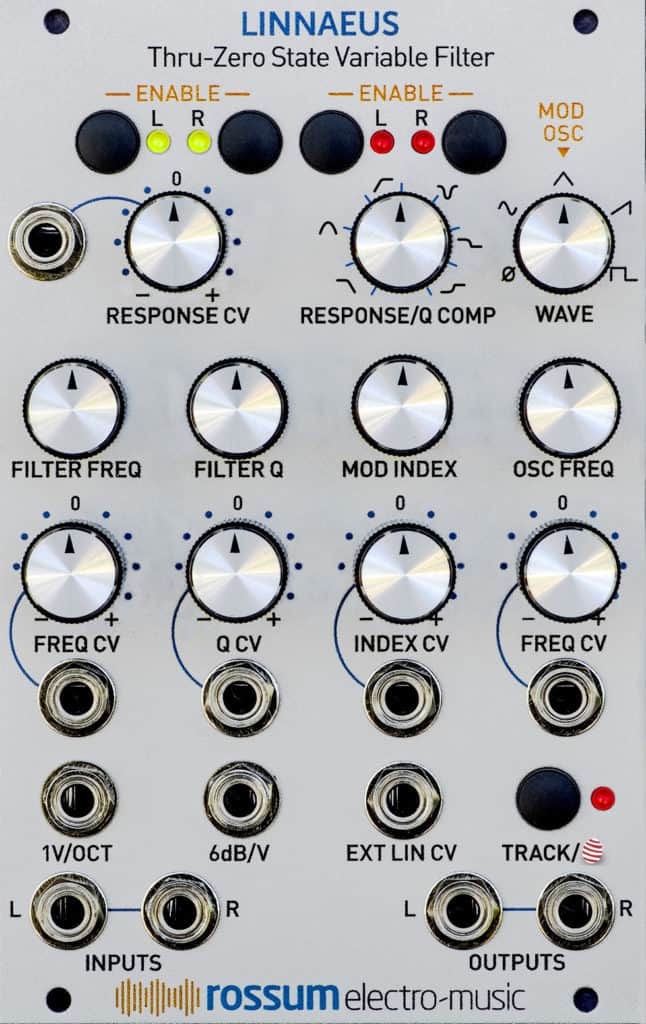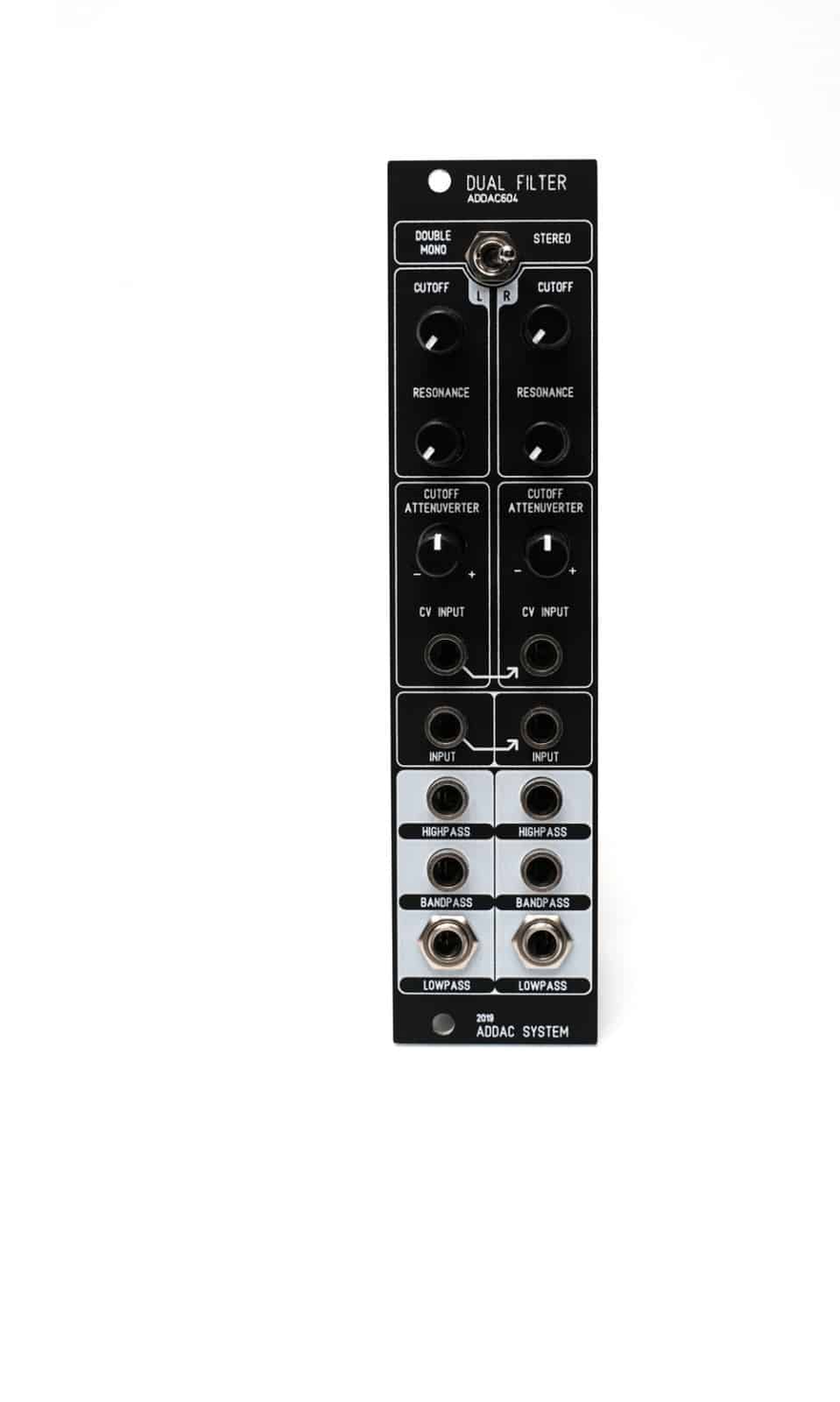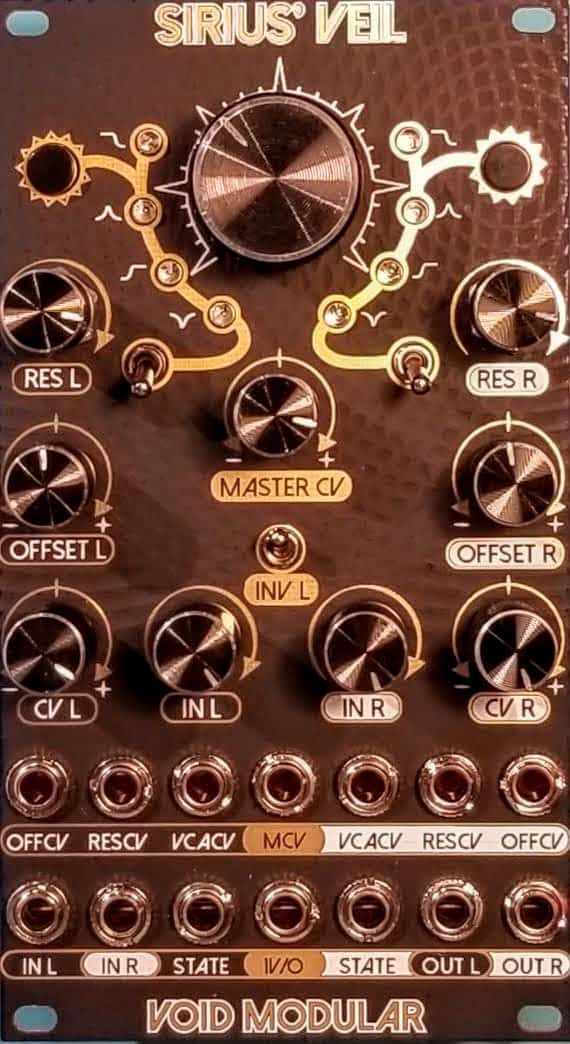Linnaeus a Filter
Rossum Electro-Music launched a new Module. Following in the tradition of Evolution and Morpheus, LINNAEUS signifies yet another Dave Rossum innovation in filter technology.
LINNAEUS is a stereo state-variable filter that provides the unique ability to linearly modulate its resonant frequency through zero into negative frequency while maintaining stability. With extensive voltage control of nearly every parameter, Linnaeus lets you manipulate the filter’s natural response curve in new ways, to create both subtle and dramatic timbral effects. And with a “one-knob-per-parameter” interface, LINNAEUS inspires sonic creativity that invites (and rewards) real-time interaction.
LINNAEUS’s cutoff/resonant frequency is exponentially voltage controllable from sub-audio to ultrasonic frequencies, while its resonant gain (Q) is exponentially voltage controllable from 0dB to greater than 60dB.
LINNAEUS’s channel output response characteristics are independently and continuously variable from Lowpass, through Bandpass, Highpass, and Notch, to Low and High Shelving characteristics. Voltage control of the response characteristics is independently selectable for each of the two channels.
LINNAEUS features include:
- Ultra-wide frequency range, exponentially voltage-controllable from sub-audio to ultrasonic via precise 1V/OCT and attenuated CV inputs
- Thru-zero linear frequency modulation via an internal modulation oscillator and/or an external linear FM input
- Variable linear modulation index, voltage-controllable via an attenuverted CV input
- Resonance (Q) exponentially voltage-controllable from 0dB to greater than 60dB via 6dB/V and attenuverted CV inputs
- Continuously variable response characteristics independently selectable for each of the two channels via individual Enable controls. Characteristics include Lowpass (12db/oct and 6db/oct), Bandpass, Highpass (12db/oct and 6db/oct), Notch, and Low and High Shelving
- Voltage control of response characteristics via an attenuverted CV input. Individual Enable controls let you independently enable or disable CV control of response for each channel
- An integrated modulation oscillator with the continuously variable waveform from Off through Sine, Triangle, Sawtooth, and Square. Its frequency can be exponentially voltage controlled via an attenuverted CV input
- A Track control that lets the modulation oscillator precisely track the filter’s exponential frequency
- Stereo inputs and outputs. LINNAEUS can process a stereo signal or two independent mono signals. While the two channels share the filter’s cutoff/resonant frequency, the filter response characteristics can be independently controlled for each channel
- The solid, high-quality construction you expect from Rossum Electro-Music
The voltage-controllable modulation oscillator can track the filter’s exponential frequency or operate independently. The modulation oscillator’s output waveform is continuously variable from Off through Sine, Triangle, and Sawtooth, to Square. The modulation oscillator output is summed with the external linear FM input and applied to the modulation index VCA, which controls the linear thru-zero modulation index from zero to 8X. The modulation index is, of course, also voltage controllable.

What’s with the Egg Button?
Beta tester Chris Meyer raised the possibility of alternative behavior that would let Linnaeus function as a self-contained (i.e., no input required) stereo oscillator and/or FM percussion voice with some really powerful timbral capabilities. While Dave Rossum was initially hesitant to try to shoehorn the new functions into the existing interface, once Dave had prototyped them, it was clear it was just too cool not to include. The result was a form of alternate “Ping Mode” firmware accessed by pressing and holding the Egg button.










